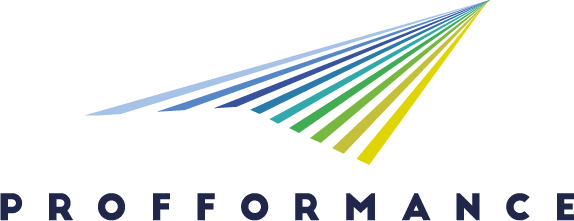Dendrilion
Dendrilion - Branching network of philosophical questions
- 01 - Education
- 02 - Arts and humanities
4. Impact and mission with and for society
- Art-guided teaching and learning
- Active involvement of students in teaching-related research projects to improve their learning
- Promoting social responsibility through teaching professional and ethical values
- Other:
-Co-operation of teachers and students on promoting philosophy as a tool for the betterment of society -Practicing (Socratic) dialogue in order to help develop sensitivity for the connectedness of theoretical and empirical spheres of life
Dendrilion stands under the light of a twofold metaphor. It points to its origin in the Greek “dendron”, standing for “tree”, and also “dendrites”, as ending parts of our branched neural cells. Accordingly, our goal was to present a branched, “neural” network of a selection of around 40 philosophical questions, categorized under different disciplines (see: Google drive link: Folder: Screenshots > File: Main Page), each under a separate card and one catchy, unrevealing name (Screenshots > Logic; Aesthetics; Metaphysics). Some questions are stand-alone, but some others are thematically connected to the ones in the same discipline, or even to those under another discipline. This creates a truthful and dynamic representation of the real and most frequent connectedness of these questions. It parallelly helps develop the participant’s thought, and upon their answers reveals potential outcomes with each new step in the thinking process. However, the app itself bears limited significance without a live, real-time conversationist to guide you and help you on your philosophical journey. With that said, our overall attempt was twofold: to bring philosophy closer to the public, and to engage our own students as the main presenters, helping them brush their dialogue, narrative, and explanation skills, as well as affirm their professional knowledge. This combination of digital and visual aspects on the one hand, and a live dialogue on the other, has proven to be a fruitful form of bridging the gap between the “hard philosophy” and public, at the same time demonstrating what philosophers do and why that is important in the broader frame of our decision-making. This association of both digital and analogue approaches remains simple in its core. Its innovation is in the calibration of the two as presented, and that is what yields positive results, engaging both students, and the highly varied population we encountered so far. Therefore, in sum, it is correct to say Dendrilion represents a platform for a guided discussion development, where both the presenter and another participant have a chance for complementary gain: the former to practice and adjust their guidance through philosophical knowledge according to the person in front of them, and the latter to open up discussing intricate, interesting, and important questions with a professional, and eventually see how they fit in the life of an active citizen.
Methodology
Tools, equipment, technology used
Outcomes and outputs, main results
Lessons learnt
Adaptability and sustainability of the best practice (for other institutions)
Promotion of best practice
Scope and impact
- Course/department level
- Faculty level
- Institutional level
- Cross-institutional level
- National level
- EU/EHEA/International level
6.1 Digitalization
- Outstanding, innovative, excellent practices of online / blended / hybrid learning
- Innovative, novel methodology in using digital tools/devices in teaching
- Innovative use of digital administration tools
- Novel digital solutions (tools, frameworks, devices, tasks to enhance efficiency and motivation)
Reasoning: A novel use of the existing digital tools, such as game engines and graphic design tools, in order to create an innovative framework which, combined with the dialogue-related and dialectical skills, yields more approachable and overall good learning results of a traditionally intricate matter.
6.2 Internationalization
- Innovative practices of blended mobility
- Students engagement in international projects
- Courses offered to international multicultural students both online and offline
Reasoning: As long as the content is localized (translated) into English, or a language of a particular nation, the internalization criterion is fulfilled. Philosophy as such is for all, and the way it is presented is the key. Therefore, this project can be easily adapted for a much wider audience, it is communicable in language and idea, and it can be presented online or offline, although the latter is preferred.
6.3 Inclusion and diversity, universal design
- Inclusive course design, universally designed divers activities to meet special students' needs
- Universally designed teaching material - adjustable for special needs
- Innovative teaching methodology for inclusion and meet diverse student needs
- Senzitivizing students to consider special needs when practicing their profession
- Course includes hints on how the services/products of the profession could be universally designed/inclusive
Reasoning: We wrote about aspects of inclusion and the universality at length in previous questions, so here we will only sum: we recommend primarily the secondary school age and older, but the overall approach which accents the importance of dialogue skills is sensitive to many different groups of people that can approach you. In our case, as a special-case group we had a few children (4 y/o). If someone wishes to tailor the app for specific special needs, there is enough room to do so.
6.4 Sustainability
- Teaching material contains profession related sustainability aspects
- Special courses reflecting to UN 2030 Sustainability goals, Green Deal - mini-courses, microcredentials
- Social entrepreneurship projects, service-learning in the topic
Reasoning: The project responds to the criteria of innovation, digitalization, equality, quality education, accessibility, building a strong institution of philosophy outside of the official institutions, and it aims to form a larger network of those who can share and contribute to developing further this good practice. Therefore, it broadly addresses the sustainability of education. Also, it serves the public by promoting with the concrete example the tacit need for philosophical education.

